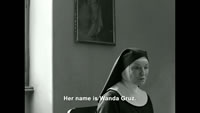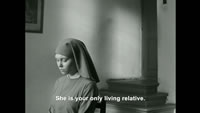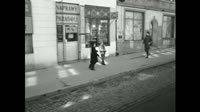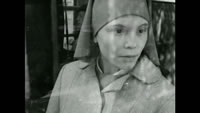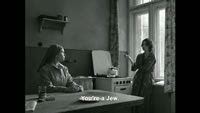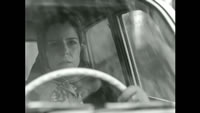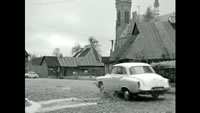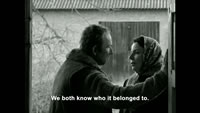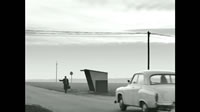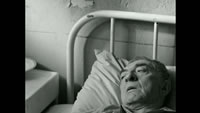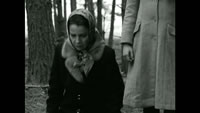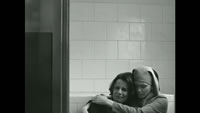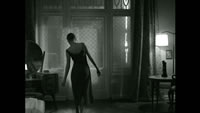Ida (2013)
Cast includes: Agata Kulesza (Suicide Room), Atata Trzebuchowska
Writer/Director: Pawel Pawlikowski (The Woman in the Fifth, My Summer of Love)
Genre: Drama (80 minutes) Polish with subtitles
Most people would consider it an austere life, but novitiate nun Anna finds the ancient convent warm and comfortable… the prayer, the silent meals, the liturgical chants. When the painted Jesus statue needs a touch up, Anna is the one with the right touch. Her vows are in a week and all is well until Mother Superior tells Anna about her Aunt Wanda. Anna never knew she had an aunt and doesn’t really care very much. But Mother Superior insists that Anna go and meet her before she takes her vows. As Anna watches the unfamiliar city sites go by from the streetcar window, we see our first real glimpses of 1960’s Poland. It’s austere too, but in a different way… it’s been rebuilt since the war, but there’s still smoldering discontent just under the surface. From the look of Wanda’s apartment building, she has faired better than most, but Anna isn’t prepared for the frosty welcome. “What did they tell you about me?” Wanda asks. “Nothing,” says Anna. “Why didn’t you come take me from the orphanage?” Wanda doesn’t answer, but says instead, “You are a Jewish nun.” Anna is puzzled. “You are a Jew. They never told you? Your real name is Ida Lebenstein.” Wanda seems to enjoy being cruel.
After showing Ida a couple of photos, Wanda sends her niece away. “So. We’ve had our little family reunion.” Wanda goes off to her job as a judge and assumes Ida will go back to the Convent. But Ida’s still there when Wanda returns, so reluctantly Wanda decides to share a bit more information about her parents… killed during the war. “Do you have to wear this ‘hood’ all the time?” Wanda asks, clearly not approving of it. The nun’s habit cover’s Ida’s beautiful red hair… like her mother Roza’s hair. Roza and Wanda were sisters… Roza was the one with artistic talent. Ida wants to know where her parents are buried but Wanda would rather not think about it. “In the woods somewhere. There were no graves for Jews.” But Wanda does, in fact, know someone who could probably show them where they are buried. He won’t be happy to see them.
Ida and Wanda couldn’t be more different. Ida has spent her whole life in a Convent; Wanda is a career woman and rather proud of her liberated lifestyle. “Do you ever have bad thoughts?” Wanda asks. Yes, Ida says. “Are they ever carnal in nature?” No, says Ida. “Pity.” Ida is a beautifully rendered journey through the psychological scars of post-WWII Poland. It’s not fast moving, and every frame looks like an artful black and white photograph. The quite nature of the filmmaking is deceptive, however, because there’s quite a bit of emotional information in each low-key sequence. Many Jews have tried without success to learn about their families, but Wanda’s profession has given her some advantages… not that she’s been eager to use them. Wanda continually looks for distractions, rather than confronting the pain of those years head on. Ida, on the other hand, is like a blank slate, not knowing how to process the past… or the present. The irony is not lost on Wanda… “I’m a slut and you’re a little saint.” Of course, it’s not that simple, and it’s a haunting exploration.

4 popped kernels
A novitiate nun learns that her parents were Jews killed in the holocaust
Popcorn Profile
Rated: PG-13
Audience: Grown-ups
Gender Style: Sensitive
Distribution: Art House
Mood: Sober
Tempo: In No Hurry
Visual Style: Nicely Varnished Realism
Nutshell: Jewish nun in post WWII Poland
Language: True to life
Social Significance: Thought Provoking

